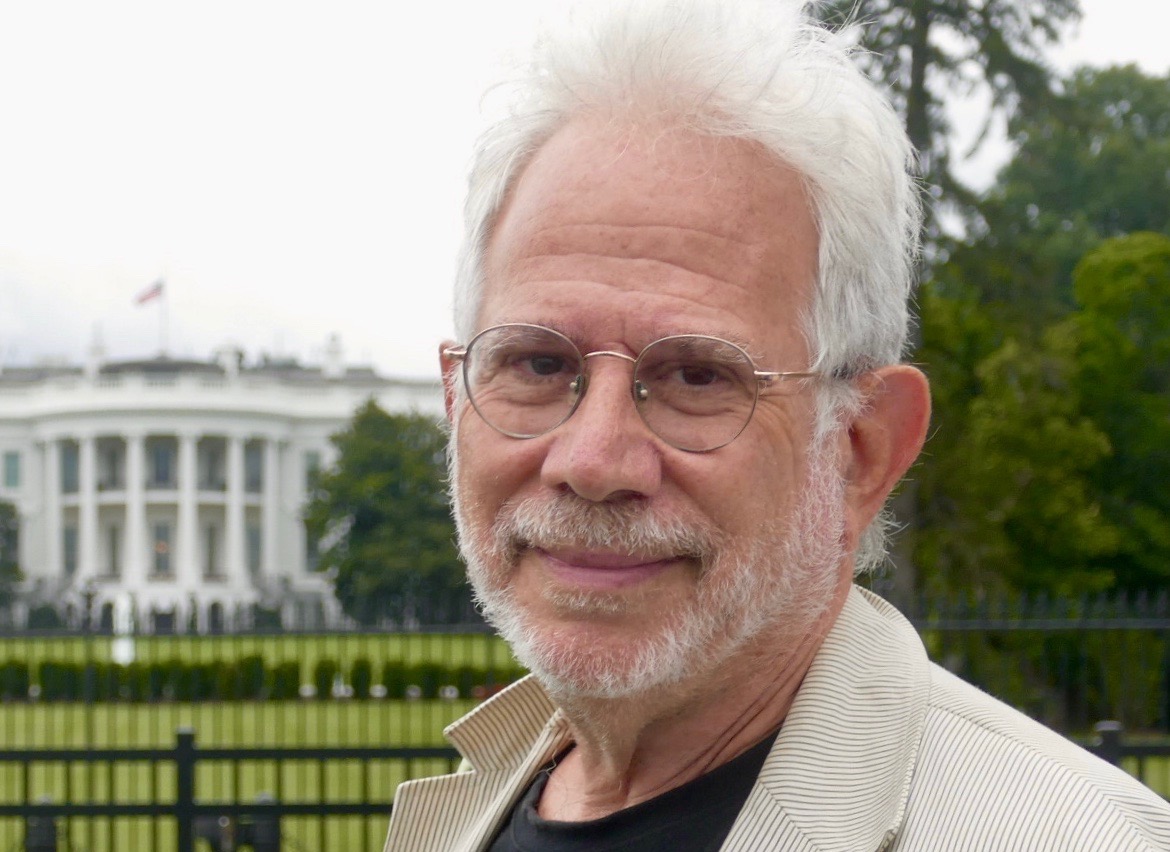John Krich was raised in New York City, lived in the San Francisco Bay Area for 30 years before 20 years in Asia, some working as a feature writer and food columnist for the Asian Wall Street Journal. He now calls Lisbon, Portugal his home in expat exile. His books include Bump City: Winners and Losers in Oakland, A Totally Free Man: The Unauthorized Autobiography of Fidel Castro, novel One Big Bed, anti-travelogues Around the World in a Bad Mood: Music in Every Room, El Beisbol, Won Ton Lust, and Why is This Country Dancing? His travel writing has also featured in Conde Nast Traveler, Vogue, European Travel and Life, The New York Times, and The San Francisco Chronicle, as well as Travelers’ Tales anthologies. Among current completed works still seeking publication are: Lost: The Guidebook, a saga of Thai divorce hell told in the form of a Bangkok Baedeker; Donna Quixote, a novel about the last days of his Communist Mom; memoirs of 20 years of trying to love China; and a collection of interviews with famed chefs trying “to save the world.”
How did you get started traveling?
I found notebooks I kept as a 9-year-old accompanying parents on my first grand tour of Europe. I rated every restaurant and hotel with stars!
How did you get started writing?
I always could write articulately on exam subjects I hadn’t studied. In the wild summer of 1969, I was briefly in a California county jail for a bad LSD trip, stoned the whole time among murderers and the moon launch. It was so powerful I felt I just had to write it down – a hundred pages, single-spaced with little punctuation. Sent to my father/mentor who was a poet and publisher turned shrink. He told me to keep going and I soon had a 1200-page youthful novel, Big Mac: A Book Disguised As a Sandwich.
What do you consider your first “break” as a writer?
Still waiting for it (haha). I wrote three Kerouac-style novels on teletype rolls and a book on the Oakland A’s before my stuff started getting published by the East Bay Express underground paper, leading to Bump City, a portrait of Oakland. But I guess the biggest break was my sharing the Pen/ Hemingway Award for my imaginary autobiography of Fidel Castro, A Totally Free Man. This led to a wonderful editor, the late Tim McGinnis, wanting to publish anything I had written, and Music in Every Room: Around the World in a Bad Mood, an account of a 1976 trip through Asia on hippie trail, which had just flowed out of me and was sitting in my closet, was ready to go. I suppose it was a break, perhaps an ironic one, that after I wrote so convincingly about how much I hated to travel, major travel magazines started paying me to do so. And then, though earnings got smaller, I got to follow my passions, writing three books on the things I love most in the world (Latin baseball, Brazilian music, Chinese food).
As a traveler and fact/story gatherer, what is your biggest challenge on the road?
Traveler and fact gatherer are two entirely different deals, and I have done both. Traveler must remain the wide-eyed amateur, recording his impressions and personal responses, and staying true to them, even when factually wrong. Of course, recalling conversations and characters on the road is tough, always selective. Hardest part about being a reporter: forcing myself, as a born passive observer to make dozens of obnoxious phone calls for contacts, bugging people.
What is your biggest challenge in the research and writing process?
I get five ideas for books in a single day. Then of course, each one might take five years to complete. The first draft, of course, is always the worst but you’ve got to vomit it out. Revising is where you really get to the gold. I find it hard to keep a journal when in the midst of things, but am always glad when I can.
What is your biggest challenge from a business standpoint?
Keeping up the energy to pitch, correspond, make phone calls. Brushing off being ignored and rejected. Frustration of having inspiring concepts for further travels and books but no one to fund them.
Have you ever done other work to make ends meet?
Ghostwriting several successful books, a few screenplays never produced, a little bit of polishing annual reports of banks in Thailand (ugh). Most of my work of last 30 years, in journalism, has been making ends meet. Would stay entirely on fiction or literary travel if not for the money.
What travel authors or books might you recommend and/or have influenced you?
Started in opposition to snide Paul Theroux, but now admire him. Redmond O’Hanlon is fun, Colin Thubron a dry but excellent practitioner of the art. Graham Greene. The best travel books are novels and the best novels are travel books.
What advice and/or warnings would you give to someone who is considering going into travel writing?
As the planet continues to get smaller, and the exotic dies out, the only real travel is internal travel, discovering ourselves and our home culture through outside mirrors. But as to making a living from subjective work, that seems to be more and more difficult. Internet wants “service” pieces, has far lowered the standards of what is travel writing and lowered the fees even more.
What is the biggest reward of life as a travel writer?
Caring about what happens to people and countries you’ve known firsthand, feeling solidarity, and joy, over the fate of strangers in Laos or the Sertao of Brazil. Fighting American-style chauvinism and false superiority, pre-conceptions. Great meals the world over.

